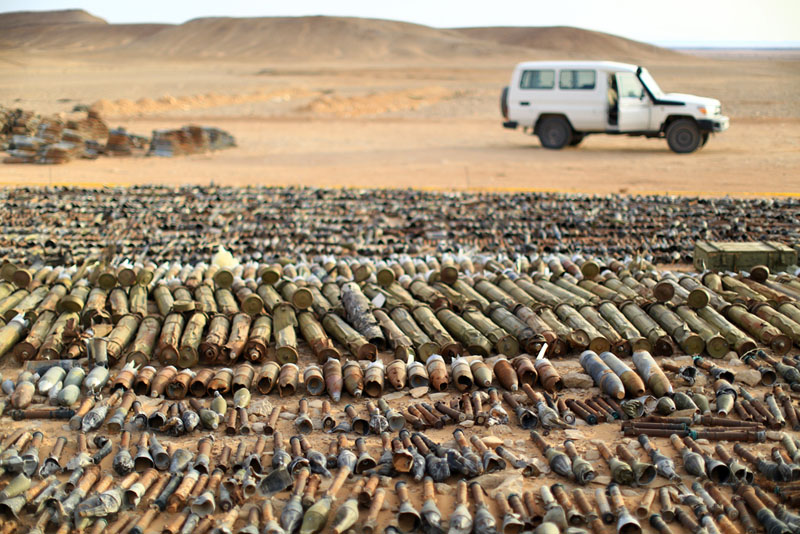
An RPG shell was discovered in a waste dump in the Al-Sayeh neighborhood, south of Tripoli, on August 11, highlighting the ongoing threat posed by unexploded ordnance in the Libyan capital.
The discovery was reported early on Tuesday to the Investigation Department, prompting the rapid deployment of a specialist team from the Security Inspection and Mine Action Bureau.
After a thorough assessment, the shell was safely secured and transferred to the relevant authorities for controlled destruction, in line with established technical protocols.
Unexploded munitions remain a persistent hazard across Libya’s urban and rural areas. Since the fall of the Gaddafi regime in 2011, tens of thousands of explosive devices—including shells, mines, and remnants of heavy weaponry—have continued to litter the country, a legacy of multiple armed fronts and recurring clashes between rival factions.
Neighborhoods on the outskirts of Tripoli, often used as bases or transit points by armed groups, are particularly affected.
Authorities have repeatedly warned that these remnants pose an immediate danger to civilians, especially children, who may mistake them for toys. International organisations, including the HALO Trust and Handicap International, are actively engaged in explosive clearance efforts, but funding constraints prevent them from covering the entire country.
Security experts say incidents like Tuesday’s underscore the urgent need for improved coordination between municipal authorities, security forces, and demining agencies. There is also a growing call for a national registry to track recovered munitions. “Until security is restored and the front lines are stabilised, Libya will remain a vast field of dormant ordnance,” warned a military analyst.
The discovery serves as a stark reminder that, more than a decade after the conflict, Libya’s civilians continue to live amid the remnants of war, with safety reliant on both local vigilance and international support.



